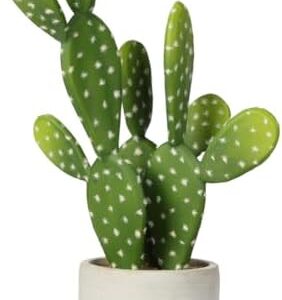Plants are truly fascinating organisms that play a crucial role in the ecosystem and in our everyday lives. From producing oxygen to providing food and medicine, they are a vital part of our world. But did you know that there are some truly mind-blowing facts about plants that will leave you in awe? Let’s explore some of these fascinating plant facts that will make you see them in a whole new light.
Did you know that plants can communicate with each other? It may sound like something out of a science fiction movie, but it’s true! Plants release chemicals into the air or soil that can signal to other plants nearby. This communication can alert neighboring plants to potential dangers, such as insect attacks or drought conditions. Some plants even release chemicals that attract predators of the insects that are attacking them, effectively calling for reinforcements. This intricate network of communication is known as the “wood wide web” and is just one example of how plants are far more complex than we might think.
Another mind-blowing fact about plants is their incredible ability to adapt and survive in extreme conditions. Some plants, known as extremophiles, are able to thrive in environments that would be deadly to most other organisms. For example, the Resurrection fern can survive for years without water, only to spring back to life when it rains. The mangrove tree is another remarkable example, able to grow in saltwater environments by filtering out excess salt from its system. These plants have evolved unique adaptations that allow them to thrive in some of the harshest conditions on Earth.
Plants also have some amazing abilities when it comes to reproduction. Did you know that some plants can clone themselves? Certain species, like the Mother of Thousands plant, are able to produce tiny plantlets along the edges of their leaves that can detach and grow into new plants. Other plants, like strawberries, reproduce by sending out runners that root and form new plants. This ability to reproduce asexually allows plants to quickly spread and colonize new areas, ensuring the survival of the species.
Plants are also masters of chemistry, producing a wide array of chemicals and compounds that have a variety of uses. Some plants, like the opium poppy, produce compounds that can be used as powerful painkillers. Others, like the quinine tree, produce chemicals that are used to treat malaria. The rubber tree produces latex, which is used to make a wide range of products, from tires to gloves. Plants are incredibly diverse in their chemical capabilities, and researchers continue to discover new compounds that could have potential uses in medicine, agriculture, and industry.
Plants also have some surprising abilities when it comes to defense. Some plants, like the stinging nettle, have developed physical defenses to protect themselves from predators. Others, like the pitcher plant, have evolved to lure and trap insects for nutrients. But plants also have a clever trick up their sleeves when it comes to defending against herbivores – they can communicate with the predators of those herbivores. When a plant is attacked by an insect, it can release chemicals that attract predators of that insect, effectively calling for help. This natural form of pest control helps plants to defend themselves without the need for harmful pesticides.
One of the most mind-blowing facts about plants is their incredible diversity. There are over 300,000 species of plants on Earth, ranging from tiny mosses to towering trees. Each plant has evolved unique adaptations to its environment, allowing it to thrive in its own specific niche. From the dazzling colors of orchids to the intricate structures of ferns, the world of plants is a treasure trove of beauty and wonder. And with new species being discovered all the time, there is always more to learn about these amazing organisms.
Plants may seem like simple organisms, but they are actually incredibly complex and diverse. From their ability to communicate and adapt to their unique reproductive strategies and defense mechanisms, plants are truly fascinating in every way. So the next time you take a stroll through a garden or forest, take a moment to appreciate the incredible world of plants that surrounds you. Who knows what other mind-blowing plant facts are waiting to be discovered?






